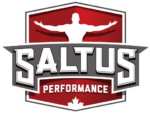BY SEAN DEL BEN, MKIN, CSCS, FMS LVL.2, FRC
The main difference between a marathon champion and 20th place is an efficient technique. That’s right, the key to improving your running performance may not solely be improving your V02 max, if at all depending on your current experience. Once your V02 max reaches your genetic potential, more mileage won’t improve it further. In this case, improving your performance will largely be determined by how fast you can run while expending as little energy as possible through optimal running mechanics and your ability to generate levels of force which can be developed through coordinative strength training.
Strength training has yet to become a ‘no-brainer’ staple as part of a distance runner’s physical preparation. This is typically due to a lack of awareness and understanding amongst both the athletes and the coaches. Much of the misunderstanding involves the idea that strength training will negatively impact your running performance by leading to weight gain or impeding your ability to fit in your mileage for the week. It is also hard for many to see the positive correlation between performing seemingly unrelated movements in the weight room and their running performance.
It is often startling for distance runners to learn that they absorb 3-4X their bodyweight every time they strike the ground. Safely accepting this amount of force and avoiding injuries to your knees and lower back (amongst other regions of the body) requires proper joint alignment, and tendons, ligaments, and muscles capable of generating high levels of tension.
In order to improve the amount of tension that your tendons, ligaments, and muscles are capable of generating you must overload your body by progressively lifting heavier weights and performing plyometric drills.
Below are a few recommendations to get the most out of your strength training, without negatively impacting both your training and your running performance.
- Lift heavy: 3-4 sets of 3-5 reps per exercise, choosing 2-3 movements for both your upper and lower body. This will increase your strength without interfering with your running workouts and without bulking you up
- Avoid developing lactic acid during your strength training in order to avoid gaining weight
- Lift 2-3x/week during the off-season, and 1-2x/week during race season. Taper accordingly.
- Primarily use compound movements that involve multiple joints, such as squats and deadlifts
- Closer to your competitive period, add in more running specific strength exercises and plyometrics to optimize the transfer of the strength you have developed to running itself
- Ideally lift in the morning, and run in the evening or vice versa. If you must do them together, lift before you run in order to reduce the training interference effect. If you absolutely must lift after your run, that is better than nothing.
